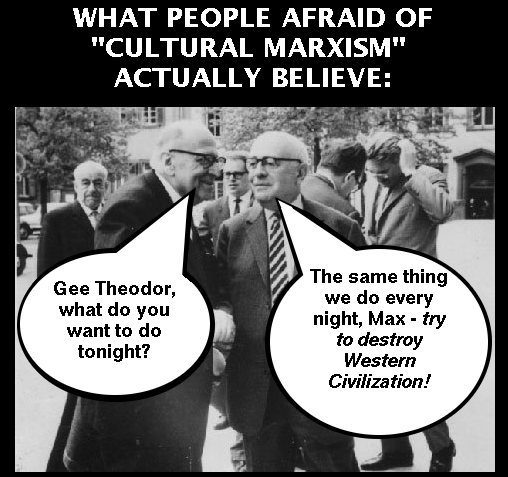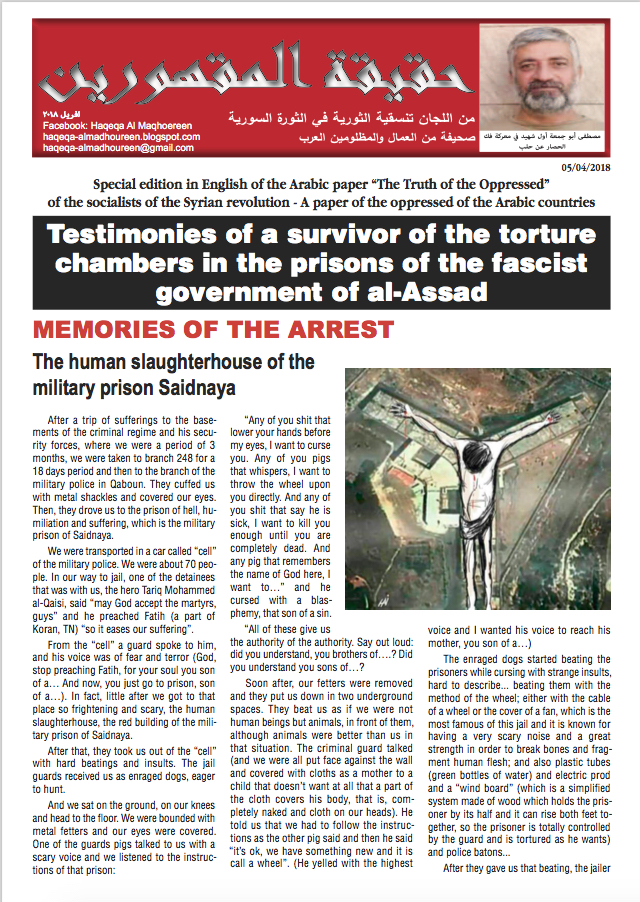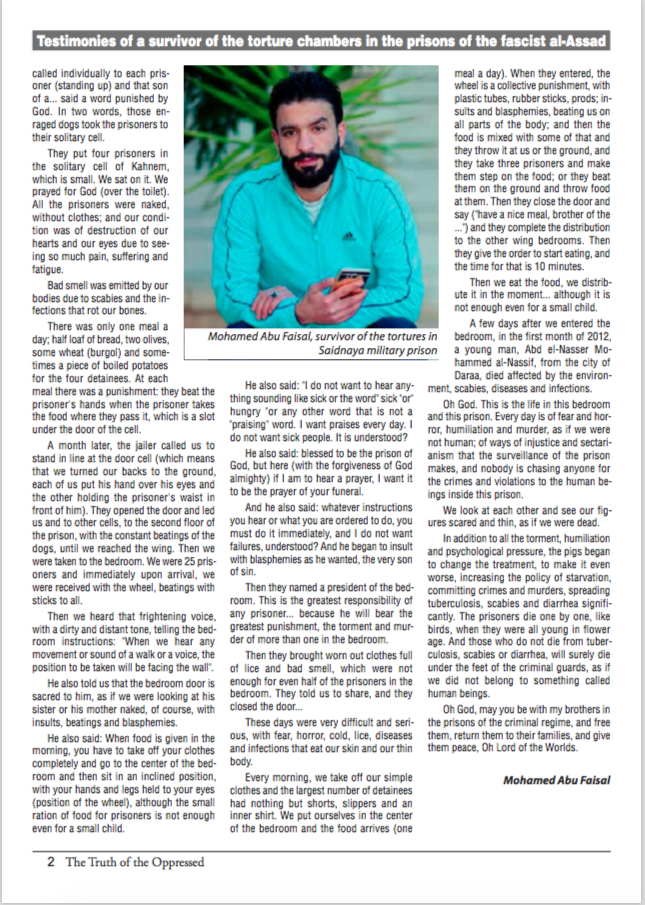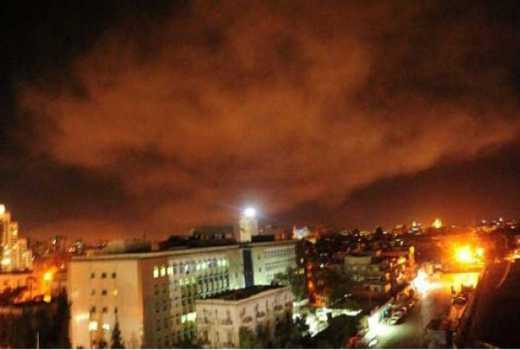Forget spies and bots – Russia’s real crimes are against the people of SyriaTony McKenna writes that Russia is supporting Assad's murderous dictatorship to secure territorial power
April 1, 2018
10 min read 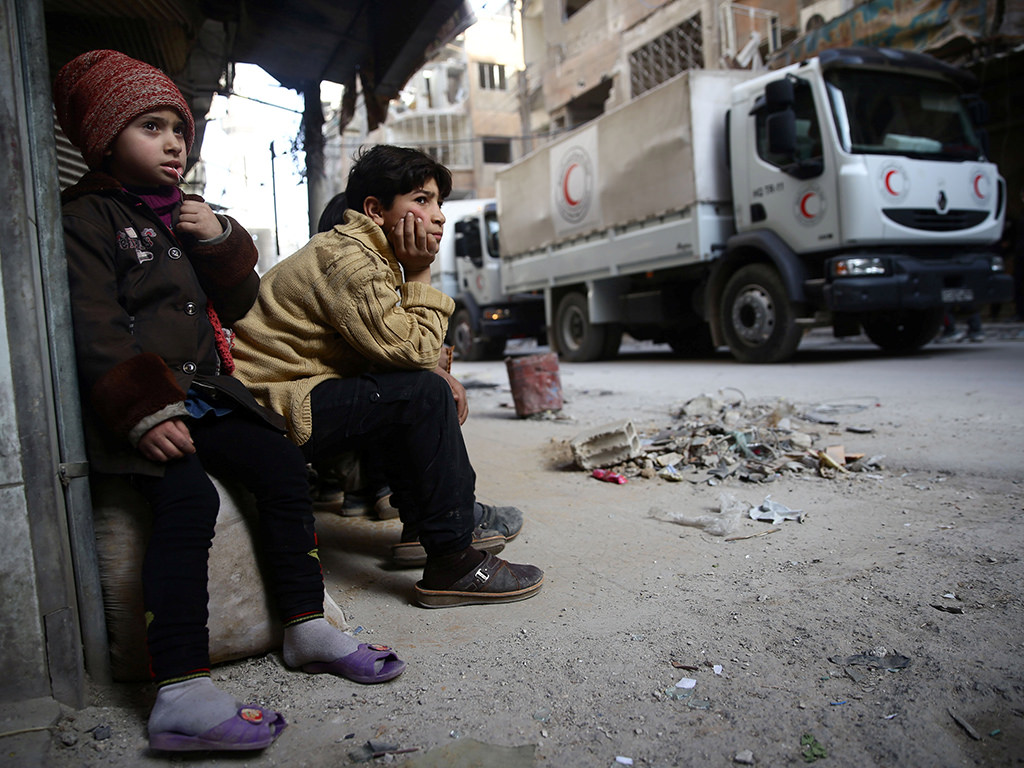 Eastern Ghouta, Damascus
Eastern Ghouta, DamascusIt seemed to happen all at once. Cold War fever descended on the UK like a thick Moscow fog. Following on from the poisoning of Russian ex-spy Sergei Skripal and his daughter Yulia earlier this month, in an attack which occurred on British soil, the hidden hand of the Kremlin was discerned at work behind the scenes; the Russian state, it was averred, had taken the darkest of revenges on one of its former employees paying scant regard to British sovereignty. Hard on the heels of this scandal, revelations about Facebook and Cambridge Analytica’s misuse of date has dredged up the debate about Russian electoral interference. A particular image of Russia has been resurrected; a subversive shadowy power, a Cold War puppet master pulling the strings from behind the curtain, manipulating nations and governments.
Yet in all this furore, little is said of the one great crime which we know the Russian state to have colluded in: its support of the murderous Assad regime in Syria. Last month alone in its continued support of the Assad regime, Russian launched a series of airstrikes against Eastern Ghouta. The region, which had been declared a ‘de-escalation zone’ in 2017, and which Russian planes were supposed to avoid, nevertheless became a mass murder ground, as Russian airpower strafed the terrain, killing hundreds within days. Amnesty International at once came out and said that the military action amounted to nothing less than war crimes. Russia’s intervention goes back longer than this, of course. Russian military intervention began in September 2015, and by late February the following year, it was launching on average 60 air raids every day in Syria. The war crimes too have been ongoing; in that same month in 2016, Amnesty international declared that Russia was ‘guilty of some the most egregious war crimes’ for decades after the charity released a report alleging that the Russian air force had deliberately targeted civilians and aid workers.
It is, of course, a world away from the individualised narrative of sinister spymasters and shadowy assassins, of patriotic belligerence in the face of wicked foreign incursion. Instead it is merely the routine, prosaic form of mass murder which is part and parcel of the everyday operations of imperial power, in this case Russian military power propping up a dictatorship in Syria whose existence is now held in place by an almost genocidal application of force against its own population.
We are used to wars in the Middle East, we are desensitised to the type of suffering which seems almost infinite in its scope, and we have become inured to the banal and mundane excuses which powerful states reel out in order to justify civilian slaughter. In Iraq, in Palestine, in Syria the refrain is always the same; Islamic terrorists hiding out within the population, terrorists who represent an existential threat to the civilian population; targeting the population, therefore, is the only way to remove the threat; one must bomb the village in order to save it.
Such a depressingly absurd rationale has been deployed by Assad and his Russian proxies over and again. On 19th February the Russian Foreign Minister Sergey Lavrov said ‘Jabhat al-Nusra is the main problem in Eastern Ghouta’. In actual fact, however, such an image was far from accurate. Research suggests that Jabhat al-Nusra, a group which emerged from the al-Qaeda network, occupied a relatively small presence in East Ghouta; at its peak constituting around 1,000 fighters, but that number was reduced to around 250 after clashes and conflicts with other rebel groups.
Groups, for example, like that of Jaysh al-Islam, the strongest rebel presence in East Ghouta, a group which originally wanted to replace the Assad regime with a state run under Sharia Law, but which later called for a ‘technocratic body that represents the diversity of the Syrian people.’ Jaysh al-Islam has been locked into a war on several fronts; against the regime forces, of course, but also against ISIS and Jabhat al-Nusra, and even some of the Kurdish forces. For its part, the Faylaq al-Rahman organization, also active in East Ghouta, is affiliated to the Free Syrian Army and it too looks to depose Assad without seeking the imposition of an Islamic state to replace him. It is, somewhat paradoxically, locked into combat with Jaysh al-Islam, as well as battling the regime.
All this is to say that rebel forces represent an incredibly complex and sometimes contradictory patchwork of political interests; it is true that their aims are expressed under the banner of Islam, but within this, there are many different political tones from a more secular state approach to the rigidly theocratic. This is important to consider especially with regard to the latest atrocities, for as the Syrian expert Ahmed Abazeid says, the majority of areas the Russians are now bombing ‘especially those under the control of Jaish al-Islam – don’t have any fighters of Jabhat al-Nusra’.
And yet, the never-ending stream of islamophobia pumped out by the mainstream media allows all these differences between rebel groups to be blurred into one single shade of Islamic extremism. After all, the rebels are in the main poor Muslim men and they have guns. The conclusion is inevitable. They are terrorist extremists. It is a logic the Assad regime has used to cynical, murderous effect.
Far from being a sworn enemy of ‘Islamic fundamentalism’, however, the historical record reveals the Assad regime has often gone out of his way to abet it. In 2011 when the revolution erupted in territories and cities across Syria, one of the first countermeasures the Syrian regime took – beyond slaughtering hundreds of protestors – was to release many high ranking Sunni jihadists from the jails, using them as a pathogen which could be wafted toward the revolutionary movement, disrupting it, corroding it, eating into it from the inside. Men like Hassan Aboud, the leader of the Salafist Ahrar Al Sham, or Abdul Rahman Suweis of the Liwa al-Haq organisation.
In fact, as Mohammed Al-Saud, a Syrian dissident, points out, ‘the majority of the current ISIS leadership [in Syria] was released from jail by Bashar Al Assad’. ISIS, of course, was resisted by a coalition of rebel forces, including the Free Syrian Army and a host of Islamic organisations, a resistance that culminated with the rout of the death cult in early 2014. It was heroically driven from the country, only to see it re-energised after its conquest of Mosul in Iraq, whereupon ISIS swept back into Syria, turning its newly won firepower on regime and rebels alike.
But while it is true that the Syrian regime has been locked into intermittent combat with ISIS, it must be stressed that ISIS and its ilk have also provided an essential buffer, insulating the regime from the rebels by splitting the rebel forces, often requiring the latter to open up a war on two fronts. Above everything else, it allows a sclerotic, zombified regime, reanimated by foreign imperial powers, to retain its death grip on a country through a campaign of terror and mass murder directed at the civilian population. From 2011-2017 the Syrian Network for Human Rights estimates of the 207,000 civilian deaths in Syria, 92.17% of these were the responsibility of the Assad regime. As the clock ticks on, the bodies continue to mount.
But this is of little consequence to the Russian government – whose primary interest is to secure their territorial power in Syria, and in the Middle East more generally. During the Cold War the USSR provided Syria with subsidies and its biggest external market, while the old dictator, Hafez al-Assad, allowed them to set up a naval facility in the Syrian port of Tartus in 1971, a port which provided Russia with a gateway into the Mediterranean, and offered a counterweight to the US imperial presence and its Sixth Fleet which was then stationed in Italy. Such a trend was revived after the collapse of the USSR. In 2009, Russia announced it would modernise Tartus, and once the civil war had broken out in Syria it started to build its military presence in the port again. This is part and parcel of a larger power struggle in the Middle East which has seen Russia – along with its allies in Lebanon and Iran, and Assad himself – attempt to forge an imperial bloc which might act as a counterweight to expanding Western influence in the region. The Syrian Civil War sits at the confluence of imperialisms, both US and Russian – competing interests which threaten to turn a regional struggle into a complex, volatile situation of deadly proportions and global impact.
Where UK politicians have attacked Russia over spectral spy-thriller scandals, they have provided very little condemnation of its foreign policy in Syria. Whilst the UK and US aren’t thrilled by the idea of Putin securing more power in the Middle East – particularly given Russian backing from Iran, and long-standing UK loyalty to the Saudis – the prospect of a rebel victory isn’t more warmly received. There’s a tendency to regard the rebel opposition to Assad through an islamophobic lens which paints all extra-state fighters as one inchoate ‘muslim threat’ to Western power (or indeed, ‘Western values’). Moreover, one can’t expect this government – with its long history of backing tinpot dictators to shore up foreign policy ambitions – is likely to provide genuine support for the more radical forces on the ground in Syria seeking autonomy and self-determination separate from the hidden hand of Western political-economic interests. But, more perhaps should be expected from the opposition. Jeremy Corbyn, and the movement behind him, has provided the most radical, popular alternative in UK politics for decades, but the Labour opposition has been shamefully silent over Assad and the war crimes his regime has committed against his own population. This must change. And Assad’s alibi for genocide, in the form of the sinister Muslim extremist waiting in the shadows on the edge of civilisation, must be revoked.




